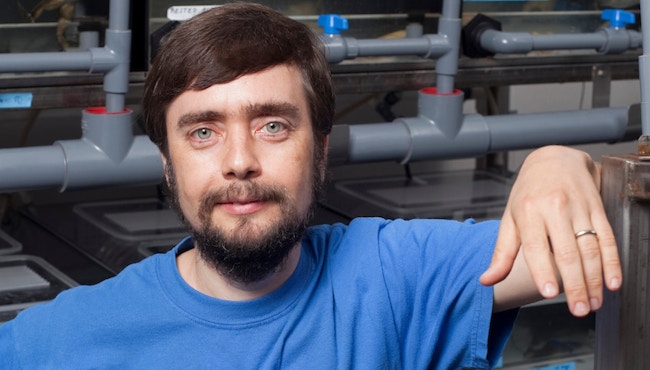Open Q&A with Michael Levin
| Nov 18 |
Mon 18th Nov 2024
3pm – 4pm EST (UTC -05:00) |
| Online | |
| https://dandelion.events/e/z925v | |
| Promoted by |
 Adventures in Awareness
Adventures in Awareness
|
| Facilitators | |
| Attending |
50+ people
|
| Enquiries to | amir@adventuresinawareness.com |
| Add to calendar | Google · ICS |
| QR code |
|
On Michael Levin:
"One of the most creative biologists working today" - Rupert Sheldrake
“Perhaps the most important person alive” - Bernardo Kastrup
A unique opportunity to dialogue with one of the most exciting scientific minds working today.
Michael Levin's pioneering research has fundamentally challenged our understanding of life, intelligence, and consciousness. Via work at multiple prestigious institutions from Harvard to Tufts University, he revealed that even single cells and primitive organisms display remarkable problem-solving abilities and memory - capabilities once thought exclusive to brains.
His groundbreaking experiments indicate that bioelectric fields coordinate cells to work collectively, enabling flatworms to regenerate their brains and retain memory, and collections of cells to spontaneously organize into working eyes. These discoveries suggest that intelligence and cognition exist on a spectrum throughout nature, emerging from the fundamental properties of living systems rather than being confined to neural tissue. Levin's work bridges developmental biology, computer science, and philosophy, pointing toward a radical new understanding of how life thinks and adapts at every scale.
You can make a donation to join, and all funds go towards the American Humane to support their work saving animal lives and ensuring their safety, welfare and well-being.
How to donate and submit a question:
When you register to attend you can make a donation and optionally submit a question.
Questions received get listed on the event page below, in order of the highest contribution,
We will select questions based on donation amount, asking them in order of the highest donation.
You even can ‘crowd source’ towards your question by asking others to sponsor your question, so it appears higher in the list of questions!
We will likely have time to discuss the top 6 to 10 questions.
If you want to crowd source to get more people sponsoring your question, just share this link and tell them to enter your question when they register.
Please submit just one question per donation, but you can donate again to ask a new question, or increase the sponsorship of your existing one.
Any donation amount is accepted and will support the work, but you can also attend for free.
Money raised so far: £631.20
Questions so far:
Raised £200:
To be read by host
This question relates to my project on dual-aspect monism.
Association (conditioning, associative learning) is an important concept in semiotic theory (CS Peirce). Birch, Ginsburg and Jablonka (2020) introduce Unlimited Associative Learning (UAL) as a benchmark for establishing cognition in living agents, all the way down to the cellular level. What do you think of association, or UAL, as a fundamental principle in top-down causation, which begins with multicellular organisms such as us, and which extends not only to the cellular level, but also to the subatomic domain to include the subatomic agents depicted in the Feynman diagrams?
ESSENTIAL BACKGROUND TO MY QUESTION
This question is of particular significance for three main reasons:
1) The idea of top-down causation is not new. It fits within the framework of dual-aspect monism;
2) My paper introduces cube root scaling (CRS). CRS releases atomic and subatomic particles from their classical (Newtonian) constraints, with implications for a phenomenology and ontology at the subatomic domain. By factoring in Bell’s inequality and the Kochen-Specker theorem (1967), we advance a framework for extending association, in the context of dual-aspect monism, to the subatomic domain;
3) There is a crisis in physics, and my paper provides one response to it. To appreciate the scale of the crisis, the Youtube presentations listed below, relate (if anyone hasn't heard of Curt Jaimungal or Sabine Hossenfelder, their URLs are easily searchable online).
THE CRISIS IN PHYSICS
Curt Jaimungal - The Crisis in String Theory is Worse Than You Think... (Oct 31, 2024) https://youtu.be/2p_Hlm6aCok?si=e14s6SxWKfMhKk3n
Sabine Hossenfelder - The crisis in physics is real: Science is failing (Nov 4, 2024) https://youtu.be/HQVF0Yu7X24?si=zwkSvI2_0YoV2txX
Sabine Hossenfelder - This is why physics is dying (Oct 5, 2024) https://youtu.be/cBIvSGLkwJY?si=NesQ-DGz560hzqgu
Bryan Callen - There's a Crisis in Physics - Sabine Hossenfelder (Oct 12, 2024) https://youtu.be/uk0QkyFSEUc?si=bmkU1_eW3Xbbqul8
Debating the crisis in physics with others
Curt Jaimungal - 20th Century’s Greatest Living Scientist - Sir Roger Penrose (Sep 28, 2024) https://youtu.be/sGm505TFMbU?si=Ed7-1Nn4S17IpZ5U
Curt Jaimungal - Sean Carroll on the CRISIS IN FUNDAMENTAL PHYSICS (Aug 5, 2024) https://youtu.be/7WzMJ7RjIGY?si=69pGYPxumVCA-oVR
REFERENCES:
Birch, J., Ginsburg, S., & Jablonka, E. (2020, December 3). Unlimited Associative Learning and the origins of consciousness: a primer and some predictions. Biology & Philosophy, 35(6), 1-23.
Kochen, S. B., & Specker, E. P. (1967). The problem of hidden variables in quantum mechanics. Journal of Mathematics and Mechanics, 17, 59–87.
Raised £100:
My question leans towards the origin of life.
Is it useful to wonder what came first ? The most minimalistic system that's capable of interaction, i.e, the most basic form of a life-like observer OR self-replication?
Is it possible that as a result of millions of years of 'observation' by a minimal system a need for self-replication arose , so as to continue the process of observation? Or maybe, one random occurence of self-replication of the minimal observer proved advantageous and conducive to the process of observation, hence it started to occur more and more ?
Raised £100:
I tend to ask broad questions and Last Q&A, your response was that 3rd person science is good at repeatable fast things. This time, I have a broad context but also a specific question,
There are scale free principles and one approach in organization design is naturalising sense making, that is using cognitive science as a constraint. "the space of competencies" could work as a contraint, is it free? What can we know about it's topology?
To bring it to somthing well scoped, I've been reading up on Mark Solms, then Jaak Panksepp's work with brain circuits of SEEKING, CARE, PLAY, LUST, FEAR, SADNESS, ANGER and of course what is the nature of affect.
These circuits have something to do with nuerotransmitters. There are all these pop concepts around dopamine ect.. What does that look like with the model organisms you work on, from evolution, what can we know about how these systems elaborate into the differentiation in the brain? Do micro competencies recapitulate in some way? Please just use this as a jumping off point if you feel it would be too speculative to answer otherwise.
Raised £30:
Is your work changing only the current biological paradigm or also physicalism? What are your thoughts about panpsychism, idealism, and process philosophy?
Raised £25:
Hello Michael, as someone that struggles in math and would like to have more neuron energy directed to these areas of my math brain, does your work on bioelectrical communication disruption relate to acquired savant syndrome and what tools could be used to channel neurological energy to areas of the brain on demand? Thanks!
Raised £20:
What an honor to have this opportunity!
What are your thoughts on the possibility of informational retrocausality or temporal non-locality as being at play in the "Platonic Forms" phenomenon you've alluded to when analyzing some of your experimental results?
Have you explored or encountered evidence or indications of retrocausality as a possible factor in the completely novel yet highly organized spontaneous bioelectrical fields and emergent morphologies that your research has discovered?
Raised £15:
In a posted discussion with Michael Pollan (May 2024) about an hour into the dialogue, Michael Levin suggested that the fundamental unit (so to speak) would be perspective. Any agent would have to advance with a perspective. This idea got us closer to Bernardo's idealism. Could Dr Levin please flesh out this comment.
Raised £10:
Please comment on Federico Faggin's theory of quantum consciousness and how it relates to Michael's and Bernardo's work.
Raised £10:
When considering the potential scaling up or down of cognition, you seem to have no problem with the idea that cognition doesn't bottom out when going lower in scale. I'm curious to know if you also feel the same when cognition scales up. For example, I'm sure you are well aware of Rupert Sheldrakes notion that the sun and all stars are conscious, which in turn are subunits within the galactic mind. So my question is, do you believe that the evidence suggests that this is the case? Secondly, if this is granted, how might this tie in with the work of Richard Tarnas?
Raised £10:
Your research suggests that intelligence and cognition are emergent properties of living systems, do you think that consciousness is also an emergent property of living systems and if so, what are its probable antecedents and if not, do you consider it an ontological primitive and not subject to analysis?
Raised £10:
How can AI help in developing models that help resilience, growth and connection with the more-than-human world (i.e. as a tool to counteract on the negative effects from human self-centered activities)
Raised £5
Could you just provide some insights into how you go about selecting gap junction modulators and how BETSE plays a role in that process.
Raised £1:
Given the inherent none scientific nature of many of the theories of mind (to describe consciousness, you'd often need to appeal to non- sensory, none replicateable, personal/subjective evidence ), is this whole field just another dogma/toy philosophy? are humans at the wrong level of consciousness to try to describe consciousness?
About Michael Levin

Michael Levin, a Distinguished Professor in the Biology department at Tufts (https://drmichaellevin.org/), holds the Vannevar Bush endowed Chair and serves as director of the Allen Discovery Center at Tufts (https://allencenter.tufts.edu/). He is also an associate member of the Wyss Institute at Harvard (https://wyss.harvard.edu/team/associate-faculty/michael-levin-ph-d/).
His group works at the intersection of developmental biology, artificial life, bioengineering, synthetic morphology, and cognitive science. Seeking general principles of life-as-it-can-be, they use a wide range of natural animal models and also create novel synthetic and chimeric life forms.
Their goal is to develop conceptual frameworks and practical tools that help detect, understand, predict, and communicate with truly diverse intelligences, including cells, tissues, organs, synthetic living constructs, robots, and software-based AIs. His mission is to develop fundamental understanding of how minds of all kinds arise, scale, persist, and change, and to use that knowledge to benefit the embodied experience of sentient beings, through biomedicine and beyond.
REFUNDS: Please note that we do not arrange refunds or exchanges. We welcome swapping or reselling your tickets with people you know.
Select tickets
Access a recording of this event that started on Mon 18th Nov 2024 🍿


